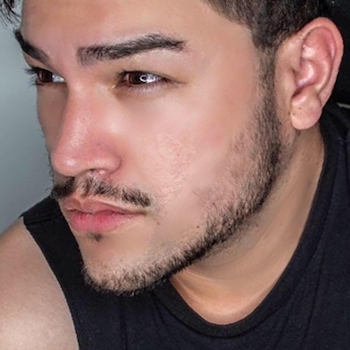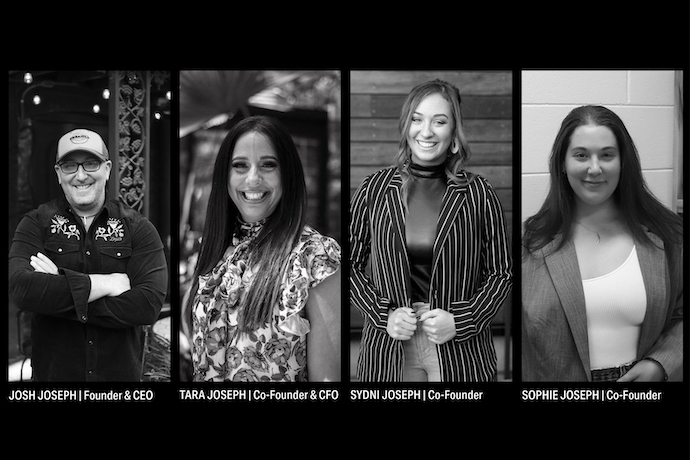
Culture
Hands-On Accountability Necessary for 2022-era Success in Philanthropy
The world of philanthropy is changing at a highly-accelerated rate, exacerbated by COVID-19 and the embrace of the ‘Internet of Things’ in the demand for greater transparency, accountability, and impact. One family foundation took this mission to heart and from their Nashville, Tennessee headquarters they are affecting tangible change.
My conversation with Sophie and Sydni Joseph, Co-Founders of The Joseph Family Foundation, is below.
What was the inspiration for starting your foundation?
Sophie: Sydni and I along with our parents, Josh and Tara, have always been extraordinarily involved in the philanthropic service and volunteering space. In 2020, our father was able to close a deal, along with his partners of a cannabis company that enabled us to start the foundation and take our philanthropic ambitions to the next step.
In 2020, we all lived through the height of the pandemic. We all witnessed the civil unrest and the civil rights narrative with calls for real and crucial action to be taken. We decided that this was the best time to start The Joseph Family Foundation and expand our philanthropic work to help shape crucial social and sustainable impact issues coming to America’s forefront.
Did the pandemic alter or galvanize your mission?
Sophie: We’ve been so involved in the philanthropic space, and we tried to do our best, but we wanted to do more. The deal our father struck coinciding with the pandemic allowed us to take the next step at a time when the world needed everyone who could step up to do so in any way possible.
Sydni: The pandemic was a huge motivator and a driving force for a lot of the philanthropic initiatives within our foundation. What was tough about COVID-19 was that while we were lucky to direct funds to noble causes, we missed the hands-on nature of being fully involved in each project.
Although our foundation blossomed and flourished during the pandemic, because we saw so many new initiatives to give towards, it definitely was a little disheartening at times when we weren’t able to provide that in-person love, support, encouragement, and facilitation with the actual causes [due to social distancing regulations]. We’re really happy now that more in-person opportunities have presented themselves, where we can actually have a hand in the work. We can take meetings and learn more about partnering with other new and exciting organizations and foundations that we weren’t otherwise exposed to during the lockdown. The in-person aspect of our foundation, the hands-on work, and accountability we offer for each project we undertake, are just as important as the financial aspect to all four of us.
Does the focus [education, living, health/wellness, and underrepresented aid] of your foundation include addressing the emotional consequences of the pandemic in addition to the physical ones?
Sophie: While each of these four focus areas have descriptive titles, we also ensured that the definitions under them are as broad as possible. That’s done intentionally because we recognize there are always going to be needs in these areas.
Regarding ‘education aid’ for example, we partnered with an elementary school in the Chicago area at the beginning of their 2021 school year. We supported them with books and supplies. We also went to the school and were helping to establish a new playground. The pandemic at times halted progress, but we are still having conversations as to how we can continue to help.
We work a lot with schools ensuring that students and faculty have access to all of the benefits of a safe and positive experience within the school walls, a true hands-on experience.
While each of these spheres remains individually important, there are many times when there’s an intersection amongst two, three, or even all four of them. For example, there was an intersection between underrepresented and education when touching on our philanthropic work in schools, because certain schools are located in underrepresented areas; there are also racial and ethnic disparities as well that need to be addressed.
For living aid, we’ve worked to address homelessness for years. Our work here overlaps with health and wellness because we’ve set up a co-pay for those who need psychiatric hospital treatment. Mental health is such a large factor when it comes to having a fulfilling and sustainable life. This is something I’m extremely passionate about.
Underrepresented aid can range across the spectrum. For instance, we have also undertaken projects with animal rescues. We also do a lot of work with rural communities in the U.S. and we’re in conversations with an international organization that works with rural communities in Africa at the moment also.
We’ve hosted fundraisers and created strategic partnerships with other organizations to support trauma organizations and psychiatric hospitals. We’ve also collaborated with the Susan G. Komen Foundation.
Sydni: During Breast Cancer Awareness month last October, our foundation and a few other groups and businesses from the Nashville area and Texas co-hosted a benefit concert and a silent auction cocktail hour with proceeds benefiting the Susan G. Komen Foundation. We held it at the Country Music Hall of Fame in Nashville, with Dolly Parton as our headliner. It was an incredible event and a massive success. There were around 15 acts that rotated, from smaller, up-and-coming artists in the Nashville area to bigger names like Dennis Quaid and Captain Sandy from Bravo’s Below Deck Mediterranean.
For an in-person event for around 700 people, we were able to raise almost $170,000 for the Susan G. Komen Foundation’s profoundly important breast cancer research and educational activities.
We’re already in the planning process for next October. Last year’s success gave us a large entry into the health and wellness space and established ourselves and our initiative as a nationally-recognized family foundation. So that’s something we’re proud of and continuing to work towards making each of these annual benefit concerts are larger and better for years to come.
What is your inspiration for this particular cause?
Sydni: There are an alarming number of people who all have first, second, or third-degree removal exposure to breast cancer. Despite all the great research and strides made, cancer is just still so prevalent. As a small example, two out of the eight women who worked to put this event together had breast cancer. That’s 25% of our staff! We have the bandwidth and are fortunate enough to have the resources to put events like this in motion. It was wonderful and it was a great learning experience and a massive success.
How important is women’s empowerment to your foundation? Do you have a specific program for women’s empowerment?
Sophie: Within the foundation, women’s empowerment would honestly fall under any of the spheres, inherent to anything that we do. If we found a chance to reach out to a women empowerment-oriented organization or they reached out to us, we would certainly consider a collaboration. Outside of the foundation, Sydni, Tara, and I work together with a women’s networking and social group that we founded and established called the Amulet Society. It is extraordinarily important to us.
While it’s separate from the foundation, the Amulet Society has a lot of overlap with the activities of the foundation.
Our core value is to ensure women’s prosperity personally, professionally, and socially. This includes philanthropic initiatives where the foundation and the Amulet Society either collaborate or overlap. While not a pillar or “sphere” of the foundation, women empowerment is a key part of what our family tries to do and we incorporate it into many if not all of our ventures.
How do you see your programs expanding in the future?
Sydni: We are looking to bridge that gap between our women empowerment working group with the Amulet Society and our current family foundation streamline and boost both concurrently. The Amulet Society is looking to launch a mentorship program that would overlap with the foundation. This program would work with women who face myriad challenges, whether it be socioeconomic, those who are victims of domestic abuse, or young mothers.
Our members partaking in this program will be supported with financial literacy and personal and professional advice and we will serve as a collective friend and a sounding board to them. This is something we are trying to implement over the next 12 months. If these women require any service or material needs, this is where the overlap between our programs will come in once again.
We’re calling it “The Go Get Her Program”. It will funnel out of the Amulet Society, but it will really be like a branch directly lined between the Amulet Society and The Joseph Family Foundation. This is a big priority to us, especially being two young women who are recently entering the workforce and just seeing how lucky and blessed we have been to have been able to receive a college education.
We were brought up under very fortunate circumstances and we have always been reminded by our families that most of the world is not like that. If we could do anything to give back in any capacity, we should always take the opportunity to do so. This is something that Sophie and myself are collectively working towards. We are going to hopefully meet some of these prospective women who’ll serve as mentees tomorrow afternoon. We’re really looking forward to it.
If folks want to learn how they can engage with your foundation, where shall they go?
Sophie: You can find us on our website. There you will find our mission statement and the different spheres of action that drive our projects.


